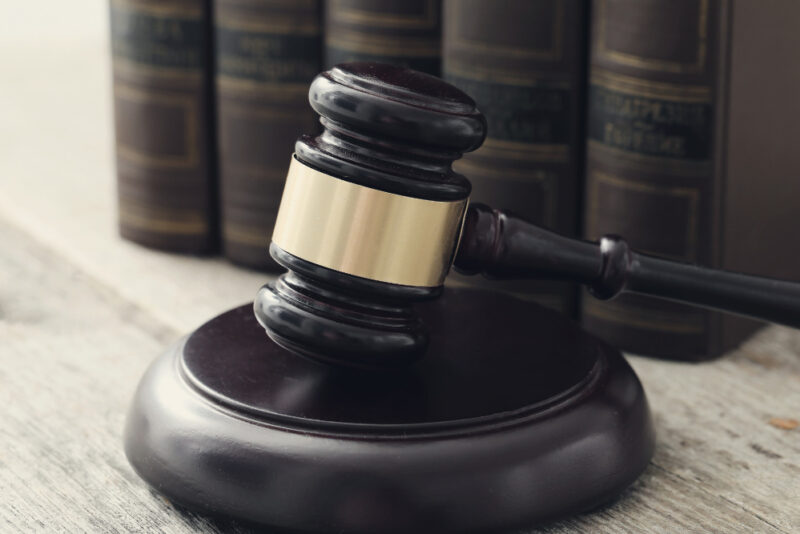Distinguishing between persecution and prosecution is crucial in maintaining fairness and equality within our society. By acknowledging these disparities, we can continue working towards creating a just world where everyone’s rights are respected. Persecution refers to the act of subjecting an individual or group to unfair treatment based on personal biases, beliefs or characteristics. On the other hand, prosecution refers to the legal process of bringing charges against a person suspected of committing a crime.
What is persecution ?
(Photo by Jose P. Ortiz on Unsplash )

Persecution is the act of subjecting a person or group to cruel, unjust treatment based on their race, religion, nationality or political beliefs. It can be carried out by individuals, groups and governments. Persecution often involves discrimination and harassment of targeted persons or groups in order to intimidate them into conforming to social norms.
It’s often used as a tool for maintaining power dynamics between dominant and minority groups within society. This kind of victimization has led to devastating consequences throughout history including genocide and mass displacement.
Persecution is considered a crime against humanity according to international law. It violates basic human rights such as freedom of speech, expression and belief which are fundamental pillars of democratic societies.
While persecution can take many forms, its underlying motive remains the same: to suppress or eliminate those who are seen as different from the majority population. The effects of persecution can last for generations even after it ceases – making it necessary that we work towards preventing this type of injustice wherever possible
What is prosecution?
(Photo by Tingey Injury Law Firm on Unsplash )

Prosecution refers to the legal process of bringing criminal charges against an individual or entity for violating a law. It is carried out by government authorities such as district attorneys or prosecutors who are responsible for investigating and presenting evidence in court.
The goal of prosecution is to prove beyond reasonable doubt that the accused committed the crime they are being charged with, and if found guilty, to impose penalties such as fines, imprisonment or community service.
In order for a case to go through prosecution, it must first be investigated thoroughly by law enforcement officials who gather evidence and build a case against the accused. This evidence is then presented in court during trial proceedings where both sides argue their case before a judge or jury.
It’s important to note that prosecutions can only occur after crimes have been committed – they do not involve any kind of discrimination based on race, religion or political beliefs. Rather, they are intended solely to punish those who have broken laws and ensure justice is served.
Prosecution plays an essential role in maintaining law and order in society by holding individuals accountable for their actions and upholding legal standards that protect citizens from harm.
Persecution Vs. Prosecution in International Law
When it comes to persecution and prosecution in international law, the two concepts are vastly different. Persecution refers to the act of mistreating or harassing an individual or group based on their race, religion, nationality, political beliefs, or other discriminatory factors. This mistreatment can take many forms such as imprisonment without trial, torture or even death.
On the other hand, prosecution is a legal process where individuals accused of committing crimes are brought before a court of law. Prosecutors must provide evidence that proves beyond reasonable doubt that an offense was committed by the accused and seek punishment accordingly.
In terms of international law specifically though, persecution often falls under human rights violations which are enforced by entities like United Nations bodies. In contrast to this however prosecutions for war crimes fall under International Criminal Court jurisdiction.
It’s important to note that while both persecution and prosecution can be used in certain contexts as tools for achieving justice and retribution; they have very different meanings when it comes to international law.
Persecution Vs. Prosecution in Criminal Law
Persecution and prosecution are two different terms that often get confused with each other. In criminal law, the difference between persecution and prosecution is quite clear.
Prosecution refers to a legal process in which an individual or entity is charged with a crime by the government. The aim of prosecution is to prove beyond reasonable doubt that the defendant committed the alleged crime and must be held accountable for it.
On the other hand, persecution involves targeting someone based on their identity or beliefs rather than any criminal activity they may have committed. Persecution can take many forms such as discrimination, harassment, or even physical violence.
In criminal law, one of the key differences between persecution and prosecution lies in their respective motivations. Prosecutors seek justice for a specific crime while persecutors target individuals due to factors such as race, religion, ethnicity or political views.
Another significant difference between these two terms is that while prosecution requires evidence proving guilt beyond reasonable doubt; persecution does not require any evidence at all since it involves targeting someone solely based on who they are rather than what they have done.
It’s essential to understand how both persecution and prosecution differ from each other in criminal law so that we can work towards upholding justice for everyone without discrimination.
What is the difference between persecution and prosecution?
Persecution and prosecution are two legal terms that are often used interchangeably, but they have very different meanings. Persecution refers to the act of harassing or punishing someone for their beliefs, race, religion, or political views. It is often carried out by a government or other authority figure to suppress dissenting voices.
Prosecution, on the other hand, is the legal process of charging and trying someone in court for committing a crime. This can include anything from minor offenses like traffic violations to more serious crimes like murder or theft.
The key difference between persecution and prosecution lies in their intent and motivation. Persecution is driven by discrimination and prejudice against a particular group of people while prosecution seeks justice for an unlawful act committed by an individual.
In international law, persecution is considered a crime against humanity when it involves widespread or systematic attacks on civilians based on their identity. Prosecution falls under criminal law where individuals are charged with specific crimes that violate laws set forth by governing bodies.
While both persecution and prosecution involve negative consequences imposed upon individuals, there is a clear distinction between them in terms of purpose and legality.
Examples of Persecution
Examples of persecution can be found throughout history and across different contexts. In some cases, individuals or groups may be persecuted for their religious beliefs, political views, ethnicity or sexuality. One well-known example of this is the Holocaust during World War II, where millions of Jews were systematically targeted and killed by the Nazi regime.
In other instances, people may face persecution based on their social status or economic background. For example, in many parts of the world today, refugees and asylum seekers are often subject to discrimination and harassment due to their lack of legal status.
Persecution can also take place within institutions such as schools or workplaces. This can include bullying or harassment based on factors such as race, gender identity or sexual orientation.
Regardless of the specific context, persecution involves a systematic effort to oppress and discriminate against a certain group of people. It is important to recognize these injustices and work towards creating a more equitable society where everyone has equal rights and opportunities.
Examples of Prosecution
Examples of prosecution are numerous and varied, ranging from high-profile criminal cases to everyday violations of the law. One example is the well-known case against former Minneapolis police officer Derek Chauvin for the murder of George Floyd. The prosecution argued that Chauvin used excessive force and acted outside his training as a police officer, leading to Floyd’s death.
Another example is the prosecution of individuals involved in financial crimes such as fraud or embezzlement. These cases often involve complex investigations and can take years to prosecute fully.
In addition to criminal prosecutions, there are also civil lawsuits where one party seeks damages from another for harm caused by negligence or intentional wrongdoing. These can include medical malpractice suits, product liability claims, and personal injury lawsuits.
Prosecution can also occur in administrative proceedings where regulatory agencies enforce laws relating to industries such as healthcare, finance, or environmental protection.
Examples of prosecution illustrate how legal systems work to hold individuals accountable for their actions and uphold justice in society.
Featured Image By – Racool_studio on Freepik








